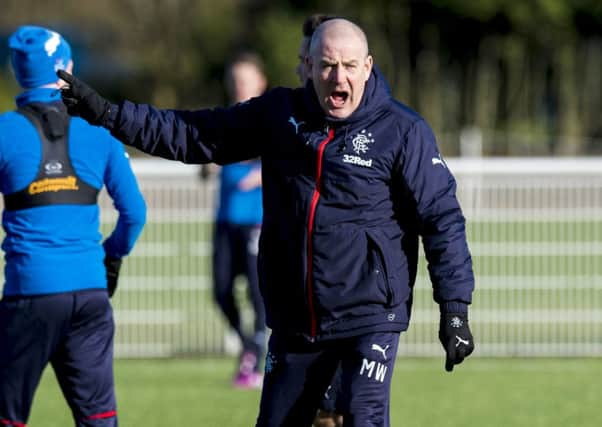Rangers stir pitch battle with Kilmarnock


Kilmarnock have been riled by criticism of their pitch by Rangers in the aftermath of Tuesday night’s Scottish Cup fifth-round replay between the teams and had called for a retraction of comments made on the Ibrox club’s website which described it as “unforgiving”.
But there was no backing down by Warburton at his weekly media conference yesterday as he unequivocally pinned the blame for striker Waghorn’s damaged knee ligaments on the pitch which Kilmarnock installed at the start of last season.
Advertisement
Hide AdAdvertisement
Hide Ad“We’re quite adamant as a club, from our medical department and from ourselves as coaches reviewing the injury, that the nature of Martyn’s injury would not be the same if he’d been playing on grass,” said Warburton.
“It’s as simple as that. Our player came off that pitch with lacerations and immediate bruising. Immediately we compared it to how it would look if you’d fallen over in the playground. That’s how it looked.
“He had blood, bruising and the scan shows any problems inside the knee. There is no doubt in our mind, there is no blame attached, we are just making the point, the nature of the surface changed the type of injury our player suffered. That’s our opinion and you won’t change it.
“I can’t possibly answer how long he’d have been out had the injury been picked up on grass. But you immediately saw bruising and lacerations on his knee. That wouldn’t have happened on grass.”
Rugby Park is one of 11 grounds in the SPFL with a synthetic pitch. New Douglas Park is the only other one in the Premiership, while the Championship has three, at Alloa, Falkirk and Queen of the South, the latter the venue for Rangers’ next fixture tomorrow.
Warburton is convinced it represents a damaging trend for Scottish football, both in terms of the commercial image of the game and its attractiveness as an environment for players. The surfaces are banned in English league football.
“There is a bigger picture here,” he said. “Look at the recent PFA Scotland survey, interviewing around 700 players and with almost 75 per cent of them saying they’d rather play on a deteriorating grass surface than on plastic.
“I asked our players about it and, straight away, our captain Lee Wallace said it doesn’t matter what we play on, we’ll deal with it. But he also said, as professionals, they’d prefer to play on grass all day long.
Advertisement
Hide AdAdvertisement
Hide Ad“After we played on Falkirk’s pitch last time, Rob Kiernan and Danny Wilson missed training for three days because of infected lacerations from the pitch. It was quite horrific and they’re still scarred now.
“From a revenue point of view, I understand why these pitches are there. I understand the need for revenue further down the leagues. I’m talking about the highest level. To raise investment, then at Premiership level you need to have a consistent, quality product. You get that with good playing surfaces.
“People talk about the weather in Scotland, but doesn’t it rain in Manchester or Liverpool? I appreciate the good quality grass pitches are about £1 million to lay down, but they are magnificent. How do we get investment to improve the quality of product? Well, for me the pitch is a major factor.
“If there’s a problem in England, they pick up on it. Here in Scotland, we need to strive for that higher level too.”
